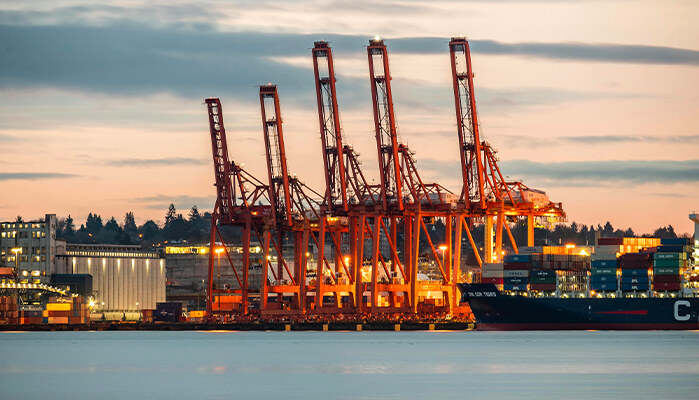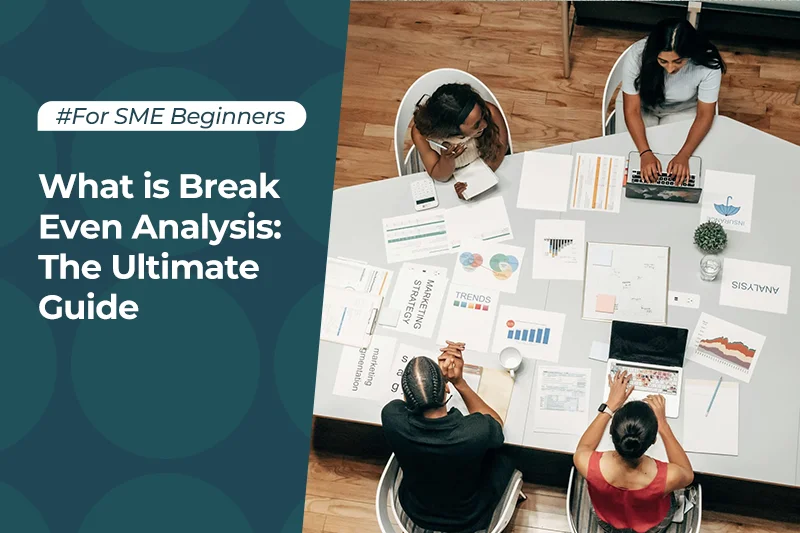Should You Make Private Label Products in 2024?

A retail business is a strenuous undertaking. From product manufacture to fulfillment, the business owner has to take care of every step involved. But what if the part of the manufacturing can be outsourced? In fact, such practice is not only widespread in the world of commerce but also bears a name - private labeling.
In this blog, we embark on our exploratory journey about private labeling and unravel its mystery. Specifically, we focus on its numerous advantages and possible disadvantages and outline the ways to choose the best manufacturer for your private label business. Stay attuned as we begin!
Table of Contents
What Is a Private Label?
A private label, in concise terms, refers to a product that is manufactured by one company (manufacturer) but bears another company’s (retailer’s) brand. This private label product is then sold to consumers as if it were of the retailer’s own brand.
The model of private labeling is popular and widely adopted, especially among large retailers. These retailers partner with manufacturers to produce in-store brands and make a profit therefrom. Typically, private label products appear in sections like pet food, beverage, grooming products, clothing, electronics, and so on.
How Does Private Labeling Work?
In the mode of private labeling, two entities are involved: the retailer and the manufacturer. They go together through a 3-stage process as described below:
Stage 1: The retailer specifies all aspects of the product they want the manufacturer to make, such as function, shape, color, etc., and informs the manufacturer of these specs.
Stage 2: The manufacturer, upon receiving the request, starts to design and make the products required, and ships them to the retailer.
Stage 3: Once the goods are made, the manufacturer delivers them to the retailer. The retailer then sells them to consumers under their own brand names.
Advantages of Private Labeling
As you might expect, private labeling boasts numerous advantages, making it a widespread model in today’s business landscape. Here are some of their advantages:
Adaptability
Private labeling stands out for its adaptability, allowing businesses to tailor products to meet specific market demands. With the private label rights to customize packaging, branding, and even product features, companies can swiftly respond to changing consumer preferences, ensuring they stay ahead of trends.
High Profit Margins
Compared to traditional business models like resaling, private labeling stands out due to its high profit margins. This can be attributed to two facts. One is that it is often cheaper to sell your own goods than to buy others’ ones and resell them. The other is that the retailer can put their established brand power to good use as they promote private label products, significantly lowering marketing costs.
Exclusivity
Private labeling allows businesses to create exclusive products that are not readily available in the market. As the retailer is the only supplier of their private label product, it can monopolize all the benefits brought by periods of increased market demand. This not only boosts profitability but also contributes to a unique and dedicated customer base.
Control over Production
Although it is the manufacturer that actually makes the products, the retailer dictates how they should be made. In other words, the retailer exerts complete control over the manufacture of the private label products. By overseeing all aspects of manufacturing, the retailer can keep itself informed and make timely adjustments if needed.
Control over Pricing
Aside from controlling over production, retailers are also controlling over pricing. They can experiment with different manufacturing costs and pricing strategies until they find the optimal solution that yields the highest profit margin.
Control over Branding
Who would want to sell other company’s products if they can sell their own? After all, it is the brand that customers are loyal to, not the distributor. By exerting control over branding, retailers can make sure that consumers love their brand, not someone else’s.
Disadvantages of Private Labeling

For all the advantages private labeling can confer, we must bear in mind that every coin has two sides. Below are some of the notable disadvantages of private labeling.
Difficulty Building Brand Loyalty
The idea of building your own brand is easy, but its practice is often not. Brand loyalty can take years to develop. And how are you going to compete with all the established big names in your chosen industry? Their brands are more well-known than yours, and their products are sold in almost every store. Even when coupled with the highest level of shrewdness and best business practices, it will be a long time before your brand-building comes to fruition.
Difficulty Controlling Minimum Orders
Manufacturer owners are smart; they know that producing goods in small quantities would result in higher per-unit costs for them. This is why they impose minimum orders. In this case, it is your challenge to sell them all and break even. Unfortunately, the minimum orders imposed by manufacturers are often larger than the amount you would like to order.
Inventory Overstock
Another challenge lying before the retailer is whether customers will like their private label products. If, after all the lengths the retailer has gone to, customers do not like the products, an inventory overstock can ensue, leaving retailers in an unfavorable position.
Examples of Private-Label Products
After a tour of the pros & cons of private-label products, it is time to furnish some private label examples for the sake of concrete understanding. Typically, the following categories see the highest prevalence of private labeling:
Coffee: Private-label coffee products are abundant in the market. Retailers often collaborate with coffee manufacturers to create unique blends, flavors, and packaging under their own brands.
Pet food: The pet food industry is replete with private-label products. Retailers, including supermarkets and specialty pet stores, often offer their own branded pet food, providing a range of options for various dietary needs.
Electronics: Private-label electronics cover a wide spectrum, from headphones and speakers to home appliances. Retailers and e-commerce platforms frequently collaborate with manufacturers to create exclusive electronic products, leveraging their brand presence to compete with established brands.
Phone accessories: Private labeling is also prevalent in phone accessories. Retailers often offer their own branded cases, chargers, and screen protectors. Private labeling enables them to provide customers with a variety of accessories while maintaining control over product quality and design.
Clothing: Private-label clothing spans various categories, from everyday essentials to fashion-forward pieces. Retailers and fashion brands collaborate with manufacturers to design and produce exclusive clothing lines. This allows them to stay on-trend, control inventory, and offer unique styles to their customer base.
Choosing the Right Private Label Manufacturer
Finally, we have come to the practical part: how to choose the right private label manufacturers. Typically, you can refer to the steps below
Before diving into the choosing process, you should form a clear picture of the product you want made. Begin by conducting thorough market research and customer preferences. Also, gauge the competition level in your chosen niche so that you know how viable your idea is.
Once the above steps are done, you can start scrolling down the manufacturer list and make your decision. More likely than not, the list you will be scrolling contains these names:
Alibaba.com: A renowned online e-commerce platform, alibaba.com connects brands to manufacturers by leveraging its global reach and unbelievably vast user base. From cookware to electronics, almost everything you can come up with is within the reach of alibaba.com.
Amazon: Amazon, a giant in the e-commerce industry, has also ventured into the private label space. The platform provides an opportunity for businesses to collaborate with manufacturers and create exclusive products.
Wholesale2b: Wholesale2b is a comprehensive platform that facilitates private label dropshipping partnerships. It connects businesses with a diverse range of suppliers and manufacturers across various industries, making it no longer necessary to maintain your own warehouses and employees.
Conclusion
The magic of private labeling is undeniable. By offloading the manufacturing process to third parties, retailing businesses can simplify their daily operation and reduce costs while reaping all the sweet benefits of selling products under their own brands. While private labeling does come with certain disadvantages, its benefits far outweigh them. As a bottom line, the model of private labeling is something that every aspiring business person should know about and appreciate in full.
Start Selling on Alibaba.com

Choosing the right manufacturer is paramount for private labeling. If you find yourself troubled by the choice of manufacturer for your private labeling business, Alibaba.com is the answer.
Specializing in international trade, Alibaba.com boasts a user base of over one billion around the world. With such an immense user base and a truly global reach, alibaba.com leaves no retailer unpaired with a private label manufacturer that is most suitable for their chosen product ideas.
All it takes to find your perfect manufacturer is a seller’s account. Sign up for Alibaba.com, try it for free, and kickstart your private labeling venture today!
FAQ
Why would a store have a private label?
Your store would benefit a lot from having a private label such as:
Brand Control: Private labels offer control over branding, allowing stores to establish a unique identity.
Profit Margins: Stores can enjoy higher profit margins by controlling the manufacturer and pricing process.
Flexibility: Quick adaptation to market trends and customer preferences is possible with private labels.
How do you start your own private label?
Starting your own private label involves a strategic process:
Market Research: Identify a niche and conduct thorough market research to understand customer needs.
Product Selection: Choose a product category based on market demand and your interests.
Manufacturer Search: Look for reliable manufacturers or suppliers through platforms like Alibaba.com or specialized private label services.
Negotiate Terms: Negotiate terms with manufacturers, considering production costs, MOQs, and quality standards.
Create Branding: Develop a unique brand identity, including a logo, packaging, and marketing materials.
Launch and Market: Launch your private label product, implementing effective marketing strategies to reach your target audience.
What is the difference between white label vs private label?
White labels and private labels refer to different aspects of branding.
White Label: White label products are generic and produced by a manufacturer without a brand, allowing retailers to sell them under their own name.
Private Label: Private label products, on the other hand, involve collaboration with a manufacturer to create unique products with exclusive branding, packaging, and specifications.
To sum up, while white label focuses on unbranded goods for easy resale, private label emphasizes creating a distinct brand identity and tailored products.
Start your borderless business here
Tell us about your business and stay connected.
Keep up with the latest from Alibaba.com?
Subscribe to us, get free e-commerce tips, inspiration, and resources delivered directly to your inbox.















